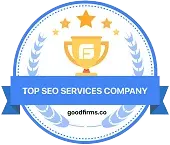Many brands, especially ones relatively new to omnichannel digital marketing trends, are unfamiliar with inbound marketing. The term "content marketing" is familiar enough, likely something you've employed to promote your own products or services.
However, content marketing is just a part of the story. If you want the bigger picture, the whole cycle of what makes a brand successful in the online world—then it is time to introduce you to inbound marketing.
Right off the bat, when talking about inbound marketing vs content marketing, these are not two opposite directions. These are parallel to one another, one being an extension of the other. It can be confusing to differentiate between the two. As well as to understand the relationship between content marketing and inbound marketing—but we’ve got you covered!
Keep reading this guide to understand both content and inbound marketing and the differences between the two.
Comparison Of Content Marketing And Inbound Marketing
To differentiate inbound and content marketing, you need to delve into each: the method, purpose, and goal. This will help you make a smarter decision about which one is more relevant and useful to your business at its current stage.
Content Marketing Explained
Before we compare inbound marketing vs content marketing, let’s start with content.
To put it shortly, content marketing is a strategic form of marketing, to consistently provide valuable content to customers to keep them informed. The end goal here is to drive the customers to take action that's profitable for the business, though in a more sustainable way.
What Makes Content Marketing Customer-Centric?
Despite the end goal, which is conversion and revenue, content marketing focuses primarily on usefulness. People want to be more informed, and businesses that fulfil that requirement are the ones that ultimately acquire loyal, lasting customers.
However, when you talk about inbound marketing vs content marketing, remember that content marketing is focused towards customers that are likely to buy—instead of just anyone. The content that essentially makes up content marketing is not only crafted to be relevant to the target audience but also promoted towards them.
We’re talking SEO (Search Engine Optimization) integrated with website development and blog content, visually-attractive infographics and other media elements that make them more sharable, informative videos in lieu of whitepapers (as people prefer visual cues), and so on.
In short, everything is well-designed and planned to get a reaction out of the viewer. The brand is not just a means to get a product or service but a story that entertains and incites emotion. The end goal, as we've talked about, is to present the audience with a cue, whether it's sharing that content with others or (ultimate win!) making a purchase.
The Purpose Behind Strategic Marketing
Content marketing is strategic because people love brands that have a life. From social media marketing to email campaigns, everything in content marketing is about value.
The conversion from viewer to loyal customer happens when people are able to build a relationship through content interaction. If the content tells a story, solves problems, and provides reasons to laugh or cry—then that content succeeds in attracting.
Do You Need Content Marketing?
Inbound marketing vs content marketing, do you need the former?
There’s nothing that can’t be sold if only the right words are used. Expert content marketers understand your brand’s strengths and weaknesses, audience, competitors, and the ongoing trends in the marketing world before crafting content.
Content is key, whether you’re talking long-form blogs to increase your Google traffic or informative short Instagram videos to gain views. Content marketing experts create pieces that provide value to customers and profitable customer action to you.
What’s Inbound Marketing?
Here’s the kicker: content marketing and inbound marketing are not two different content marketing methods. Rather than taking it as inbound marketing vs content marketing, you can consider inbound marketing an extension of content. It is a "tactical" approach in online marketing that focuses on providing information to the customer when they need it.
Why The Tactical Approach & What Does It Entail?
While content creation focuses more on creating useful and valuable content to drive profits, inbound marketing considers every step of a customer's journey. It's a holistic marketing method, the journey between business and customers (or businesses) from strangers to prospects, to customers, and then eventually to promoters.
The first step in inbound marketing is engagement, not just with prospects but also with present customers. Inbound marketing is about building trust. It uses content but takes it further and builds a relationship.
The inbound methodology comprises a complete marketing mix, the starting point being customer engagement via content. It includes the following types of digital marketing:
• Website Optimization & SEO
• Lead Nurturing
• Social Media Marketing
• Email Marketing
• Complete Analysis
Think of inbound marketing like a sales funnel, only the marketing does not stop at sales, and there are a lot of steps in between. It’s a continuous cycle, one where you keep working on customer needs.
A primary difference in inbound marketing vs content marketing is numbers. Inbound marketing uses data.
In fact, a modern marketing mix (based on the inbound methodology) will also include marketing automation. This uses previous data to make predictions. The right software can provide you with information about customer engagement patterns and buying behaviours. It can also use metrics to tell you what strategies will be most rewarding.
What Makes Inbound Marketing Advantageous?
Take an example of a brand that associates its product with some life event. Nike’s “Dream Crazier” advertisement is a prime example of inciting emotion. The ultimate target audience behind the campaign is women.
Nike builds a relationship by narrating a history of women in sports (their product being sportswear for women) and lends support in a tear-jerking manner. This, is the magic of content marketing—it is words converted into relatable stories that ultimately convert.
However, as per the rules of inbound marketing strategy, this content is not just about selling. It’s about awareness too. Ads like Nike’s Dream Crazier are memorable, not just in terms of informative entertainment but about their ability to show that a brand cares about customer needs.
Therefore, inbound marketing is a multi-faceted, well-rounded and sustainable form of online marketing. As a business owner or marketing manager, you don’t want to stop an inbound methodology, a framework consisting of different online marketing methods.
What’s Vital: Inbound Marketing Or Content Marketing?
Simply put, you start with content marketing, and you continue with inbound marketing. You don’t always have to consider inbound marketing vs content marketing.
Inbound methods take data based on actual results and use it for marketing strategies with the highest chance for conversion. The focus of inbound marketing is to improve customer experience by optimizing content that suits their needs and preferences.
Ultimately, in inbound marketing vs content marketing, inbound marketing has the upper hand. It is not only sustainable but also scalable. Since you can create as much or as little content as possible on as many or as few platforms as you like, you can easily scale inbound marketing according to what's best for your business and its customers.
Content Marketing and Inbound Marketing Relationship
You may have observed many digital marketers offering content creation, social media, email marketing, web development, SEO services, and other online marketing services. However, inbound marketing does not pop up often…why?
Inbound marketing is a two-letter term with a vast array of services. Digital marketing is not a one-size-fits-all process. Startups and small businesses usually begin with just a website, SEO and social media. They then expand to consistent content creation and monthly social media calendars. Once the budget is higher and engagement boosted, brands move toward PPC and email marketing.
Therefore, inbound marketing is when you choose all or most of the services in the portfolio of a digital marketing agency and make it a journey. It keeps the wheel spinning: you engage with new customers, improve relationships with present ones, expand to a wider network of audiences, and build brand awareness as far as it can go.
Verdict: Key Differences Between Inbound Marketing And Content Marketing
Here’s what we’ve got so far when comparing content and inbound marketing:
• Content marketing is strategic, while inbound marketing is tactical.
• Content marketing comprises content creation, while inbound marketing comprises content and other digital services that use the content.
• Content marketing is a one-and-done part of the story; inbound marketing is a sustainable cycle of marketing.
Rolling Cherry – Ultimate Solution For Inbound Marketing Services
Do you want to learn more about inbound marketing vs content marketing? Do you need to avail content creation services or complete digital marketing services with an inbound methodology? You're at the right place!
At Rolling Cherry, we take into account your business needs before devising a marketing plan, regardless of what you choose. If you are new to digital marketing and not sure about your first step, our expert digital specialists can help you.
Let's navigate the world of content and inbound marketing together. Drop a call today to get started!





